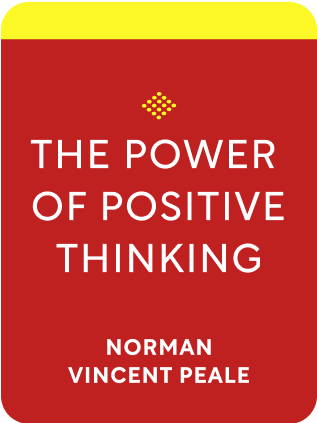

This article is an excerpt from the Shortform book guide to "The Power of Positive Thinking" by Norman Vincent Peale. Shortform has the world's best summaries and analyses of books you should be reading.
Like this article? Sign up for a free trial here .
What obstacles in life have you overcome with the help of faith? Do you believe that the simple act of faith can change one’s life outcomes?
When you think about defeat, you tend to get defeated. Instead, adopt a mindset where you don’t believe in defeat. This mindset requires faith for overcoming obstacles. As one of the Bible passages holds “I can do all things through Christ which strengtheneth me” (Philippians 4:13).
In this article, we’ll explore how the power of faith can help you overcome any obstacle in your way.
We Create Our Own Obstalces
In his book The Power of Positive Thinking, Norman Vincent Peal says most of our obstacles are internal in nature. Even when obstacles are physical or external, our attitude toward them dictates our response.
Peale says that, if you take the mental attitude that an obstacle is impossible to overcome, you won’t get past that obstacle. But when you firmly believe that the obstacle is removable, you start the process that leads to the obstacle’s eventual defeat.
We all face difficulties and obstacles. While real, they aren’t as insurmountable as they seem when you keep faith, believe that God has given you the power to lift yourself out of the situation, and affirm that with this power you can do anything.
| Purple Cow, by marketing guru Seth Godin, offers a tidbit on the dangers of fear. Godin says that fear creates a logical paradox: When things are going badly, we think we can’t afford to take risks. When things are going well, we think we don’t need to take risks. In short, fear paralyzes us—we’ll always find a reason not to act. Peale is suggesting that we adopt a mindset where defeat doesn’t exist so that we don’t get paralyzed by that fear. |
Faith Provides Staying Power
According to Peale, faith is what keeps you going when things get hard. When facing difficulties, try to remember that—as unique as you may think your situation is—other people have experienced it before you.
People have overcome every conceivable situation, so someone has overcome your situation, no matter how impossible it may seem. There’s no difficulty you can’t overcome.
| In The Subtle Art of Not Giving a F*ck, Manson approaches this same issue from a different angle, and bluntly tells us that we’re not special. In other words: Your problems aren’t unique. Other people have it worse than you. Whatever you’re going through, it’s not an excuse to give up. Manson’s suggestion is to take responsibility for your own situation, whatever it is. That doesn’t mean taking the blame—rather, it means accepting that you have the ability and the obligation to work through your difficulties and improve your life. Whereas Peale urges us to have faith in God, Manson’s advice is to have faith in ourselves; to trust that there’s no problem so dire that we can’t overcome it. |
Use Faith or Reason Against Obstacles
While Peale suggests that we need faith for overcoming obstacles, other schools of thought claim that logic is a better tool.
Marcus Aurelius’s Meditations is one of the definitive books on Stoicism. In it, Aurelius urges us to examine every situation rationally, instead of emotionally. By doing so, Aurelius says, we’ll realize that the only thing that can really impede us is ourselves—no external force can prevent us from doing what we know is right, or force us to do something that we know is wrong. Therefore, the only reason we haven’t been able to overcome a certain obstacle is that we’ve convinced ourselves that we can’t do it; that the situation is too difficult or too unfair.
In truth, all we have to do for any problem is approach it rationally, determine the solution, and then do what needs to be done. To give a simple example: If you’re about to eat an apple and you find that it’s rotten, you simply throw it away. You immediately recognize that there’s no benefit to complaining about the rotten apple or keeping it in your house; you just solve the problem and move on.
Ryan Holiday’s book The Obstacle is the Way takes this concept a step further, saying that the most successful people are those who can turn apparent obstacles into advantages. For example, in the “Rumble in the Jungle” between boxing legends Muhammad Ali and George Foreman, Ali took advantage of his opponent’s immense strength and brutality: He used the rope-a-dope to trick Foreman into exhausting himself with ineffective punches, then struck back in a later round to win the match.

———End of Preview———
Like what you just read? Read the rest of the world's best book summary and analysis of Norman Vincent Peale's "The Power of Positive Thinking" at Shortform .
Here's what you'll find in our full The Power of Positive Thinking summary :
- That there is no problem or obstacle you can’t overcome with faith, positive thinking, and prayer
- The practical techniques of applied Christianity
- How to take control of the events in your life rather than be directed by them






